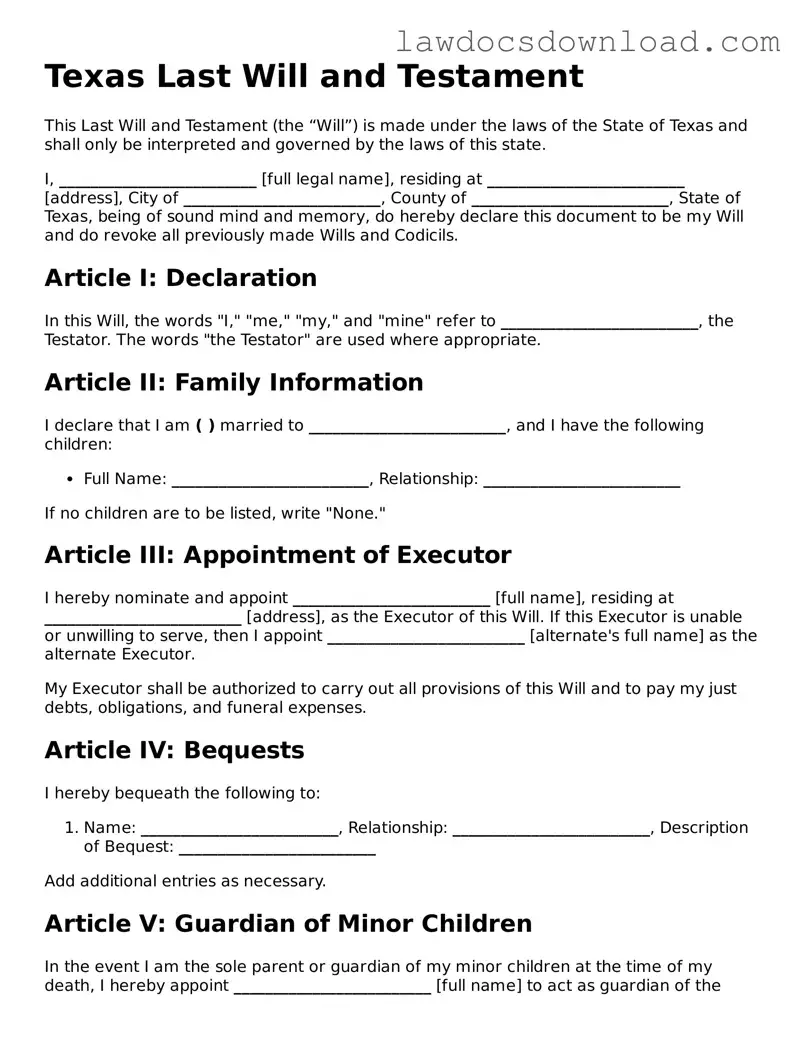Texas Last Will and Testament
This Last Will and Testament (the “Will”) is made under the laws of the State of Texas and shall only be interpreted and governed by the laws of this state.
I, _________________________ [full legal name], residing at _________________________ [address], City of _________________________, County of _________________________, State of Texas, being of sound mind and memory, do hereby declare this document to be my Will and do revoke all previously made Wills and Codicils.
Article I: Declaration
In this Will, the words "I," "me," "my," and "mine" refer to _________________________, the Testator. The words "the Testator" are used where appropriate.
Article II: Family Information
I declare that I am ( ) married to _________________________, and I have the following children:
- Full Name: _________________________, Relationship: _________________________
If no children are to be listed, write "None."
Article III: Appointment of Executor
I hereby nominate and appoint _________________________ [full name], residing at _________________________ [address], as the Executor of this Will. If this Executor is unable or unwilling to serve, then I appoint _________________________ [alternate's full name] as the alternate Executor.
My Executor shall be authorized to carry out all provisions of this Will and to pay my just debts, obligations, and funeral expenses.
Article IV: Bequests
I hereby bequeath the following to:
- Name: _________________________, Relationship: _________________________, Description of Bequest: _________________________
Add additional entries as necessary.
Article V: Guardian of Minor Children
In the event I am the sole parent or guardian of my minor children at the time of my death, I hereby appoint _________________________ [full name] to act as guardian of the person and estate of said minor children. If this person is unable or unwilling to act as guardian, I appoint _________________________ [alternate's full name] as alternate guardian.
Article VI: Other Provisions
All other property and assets not specifically bequeathed shall be distributed to _________________________ [name]. If this person predeceases me, the distribution shall then be made to _________________________ [alternate's name].
Article VII: Attestation
This Will was signed in the city of _________________________, in the State of Texas, on the ______ day of ____________, 20__. I, _________________________ [full legal name], hereby declare this to be my Last Will and Testament in the presence of the witnesses who signed below in my presence and in the presence of each other.
Witnesses
The following witnesses certify that the Testator, _________________________, signed this document in their presence and declared it to be their Last Will and Testament on the date and at the location written above.
- Name: _________________________, Address: _________________________, Signature: _________________________, Date: ______________
Add additional witness entries as necessary.
Notarization
This Will was duly notarized in the city of _________________________, State of Texas, on the ______ day of ____________, 20__.

